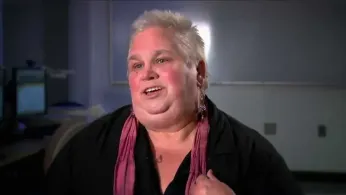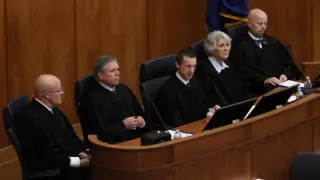
8 hours ago
Remembering Loraine Hutchins: Trailblazer for Bisexual Visibility and Justice
READ TIME: 3 MIN.
Loraine Hutchins, Ph. D. , who passed away this week, is remembered as a transformative force in the fight for bisexual visibility, inclusion, and justice within the broader LGBTQ+ movement . Her activism, scholarship, and community work over more than four decades made her a revered leader who continually expanded conversations about sexuality, spirituality, and intersectionality .
Born in 1948 in Washington, D. C. , Hutchins grew up in a family deeply involved in the civil rights movement and committed to racial integration and social justice . Raised in a progressive Methodist tradition, her family fought for an integrated neighborhood church, an experience Hutchins credited as foundational to her understanding of justice and inclusion .
Hutchins completed her undergraduate studies at Shimer College in Illinois in 1970, majoring in English and American Literature. Decades later, she earned a Ph. D. in Cultural Studies from Union Institute and University, focusing on the intersection of sexuality, spirituality, and social justice. Her dissertation, "Erotic Rites: A Cultural Analysis of Contemporary U. S. Sacred Sexuality Traditions and Trends, "offered a queer feminist perspective on sex-positive spiritualities and explored the links between sexual liberation and broader human rights movements .
Hutchins is perhaps best known for co-editing, with Lani Kaʻahumanu, the seminal anthology "Bi Any Other Name: Bisexual People Speak Out"in 1991. The anthology, featuring essays and personal stories from bisexual individuals, is widely credited as a catalyst for the modern bisexual movement in the United States and remains essential reading for anyone seeking to understand bisexual experiences . A 25th-anniversary edition published in 2015 reaffirmed its enduring significance.
In an era when bisexuality was often misunderstood or marginalized, even within LGBTQ+ spaces, Hutchins became a leading advocate for bisexual inclusion and recognition. She worked tirelessly to ensure bisexual voices were included in organizing, scholarship, and public policy, helping to secure the "B"in the LGBTQ+ acronym and fighting against the erasure of bisexual identities . Through her writings, including academic articles and book chapters, Hutchins challenged stereotypes and highlighted the unique challenges facing bisexual people, such as invisibility, discrimination, and lack of resources.
Hutchins’s influence extended far beyond activism. She was a respected scholar and educator, teaching interdisciplinary sexuality studies at the undergraduate level and publishing widely in academic journals and anthologies . Her works, such as "Sexuality, Religion and the Sacred: Bisexual, Pansexual, and Polysexual Perspectives" , explored the intersections of sexuality, faith, and identity.
Throughout her career, Hutchins foregrounded the interconnectedness of race, gender, class, and sexuality. Her advocacy was rooted in a deep commitment to social justice, and she was vocal about the need for LGBTQ+ movements to address all forms of oppression. She brought attention to the erasure of bisexuals in academia and media, arguing that true liberation requires challenging exclusion and fostering intersectional solidarity .
Beyond her scholarly contributions, Hutchins was active in community organizing, helping to create local coalitions as the gay rights movement in the U. S. expanded to include lesbian, bisexual, transgender, and other queer voices . She was a frequent speaker at conferences, workshops, and pride events, sharing her experiences and advocating for bisexual visibility and justice.
Hutchins’s later work increasingly integrated spiritual beliefs and practices into sexuality education, reflecting her lifelong interest in the connections between faith and liberation. She lived in a multi-faith retirement community founded by Quakers in Sandy Spring, Maryland, and her archival papers are preserved at Smith College and Goddard College .
Loraine Hutchins’s passing is a significant loss for the LGBTQ+ community, but her legacy is deeply woven into its fabric. She is remembered as one of the few who steadfastly championed bisexuality, ensuring that bisexual people had a seat at the table and a voice in the movement .
Her work continues to inspire new generations of activists, scholars, and community members. As Mason Funk, who interviewed Hutchins for the Outwords Archive, notes, her life’s work was about “making bisexuals visible” and building a queer movement grounded in justice, complexity, and solidarity .
In tributes shared across social media and in LGBTQ+ news outlets, Hutchins is celebrated not only for her groundbreaking publications but also for her mentorship, generosity, and unwavering commitment to an inclusive movement .
Loraine Hutchins leaves behind a blueprint for bisexual activism rooted in scholarship, intersectionality, and compassion. Her leadership has helped countless bisexual people find affirmation, community, and pride. Hutchins’s vision—that bisexuals belong at the heart of LGBTQ+ liberation—remains urgent and necessary, a call to action as the movement continues to grow and evolve.






